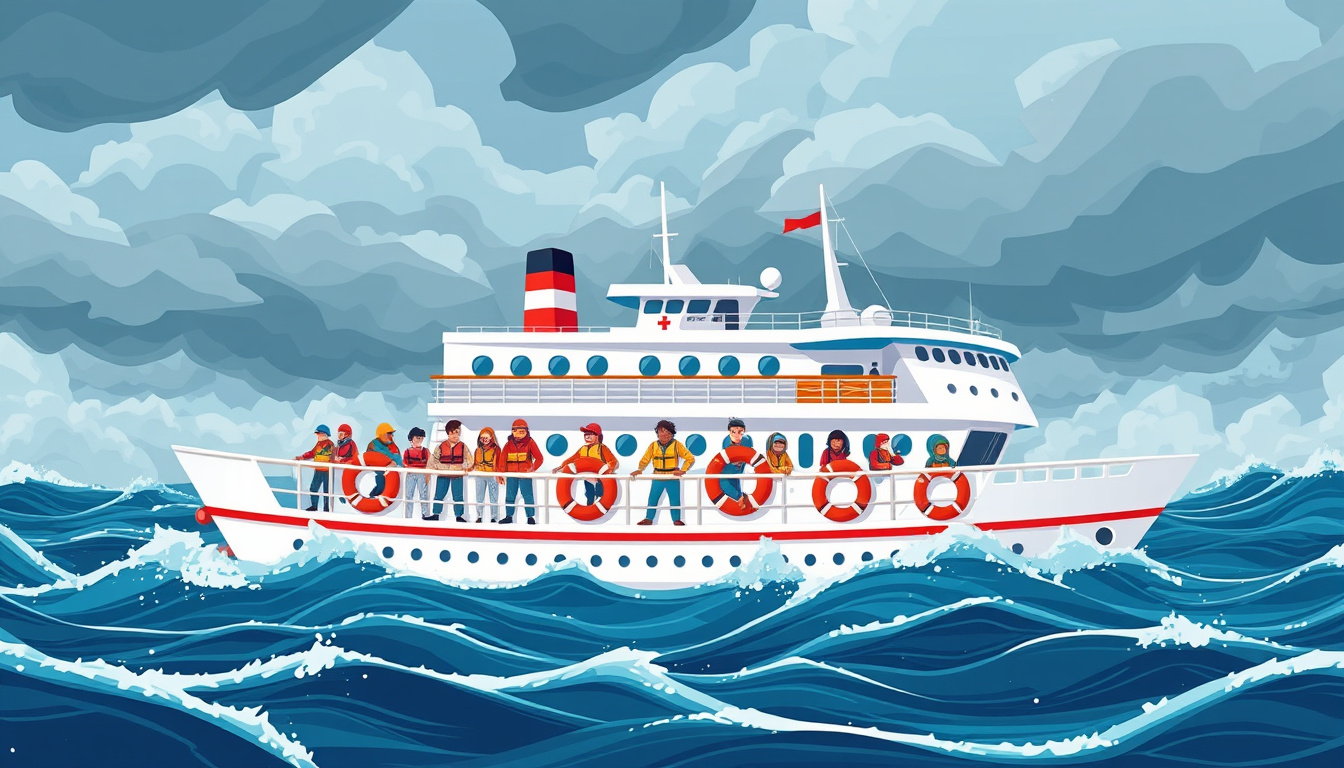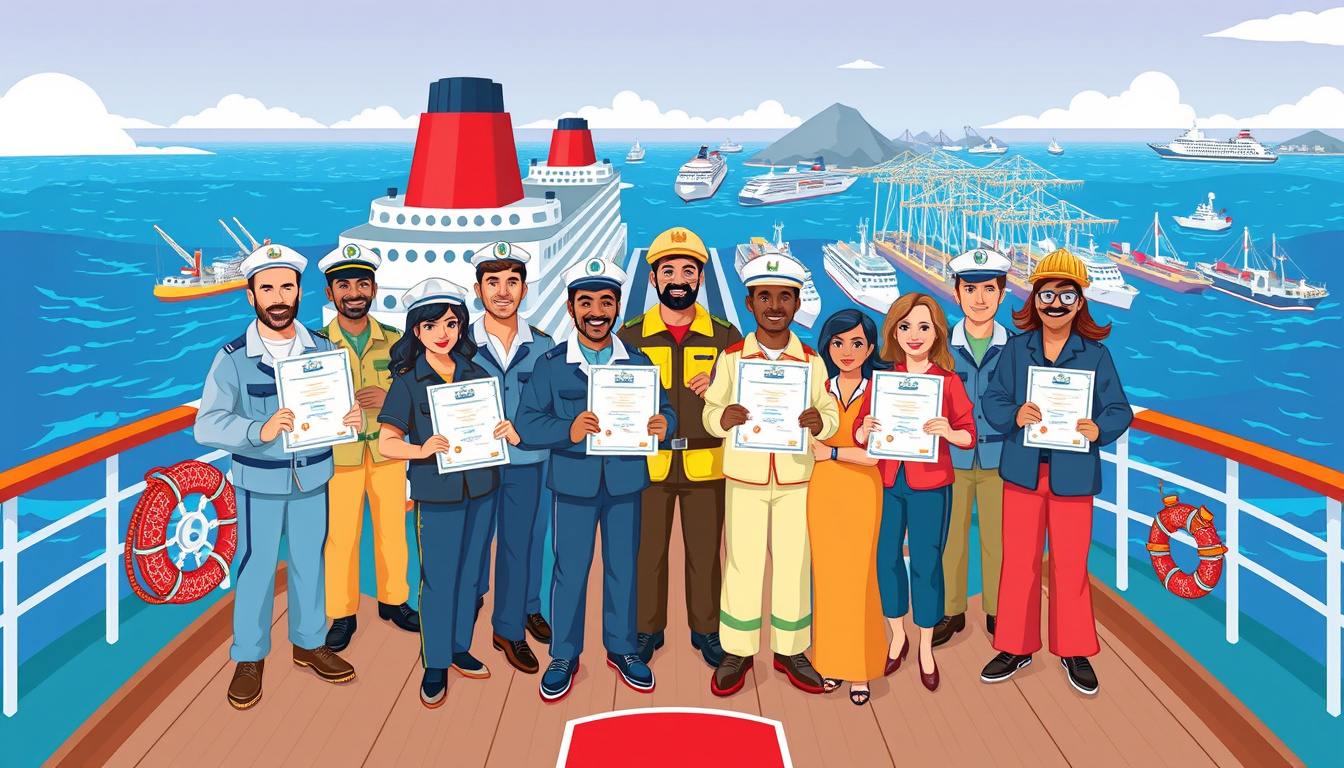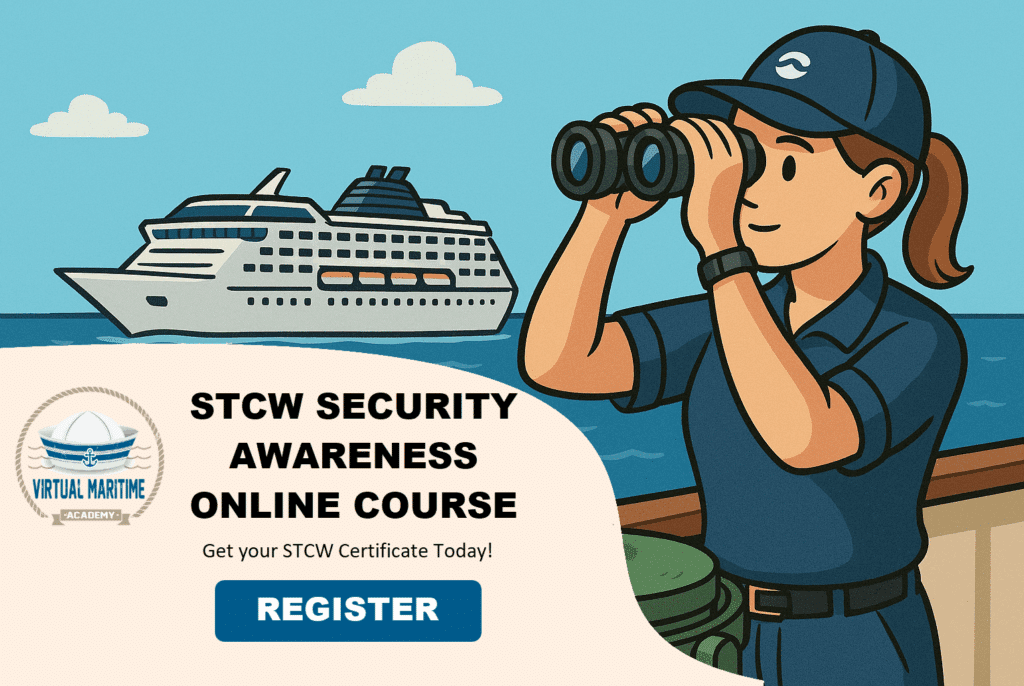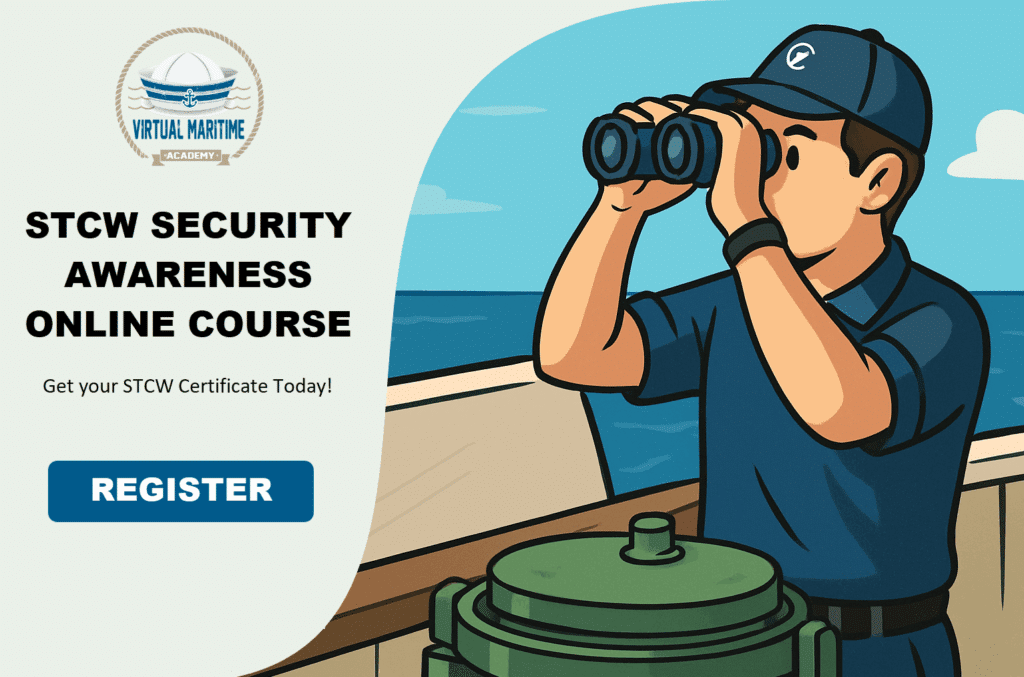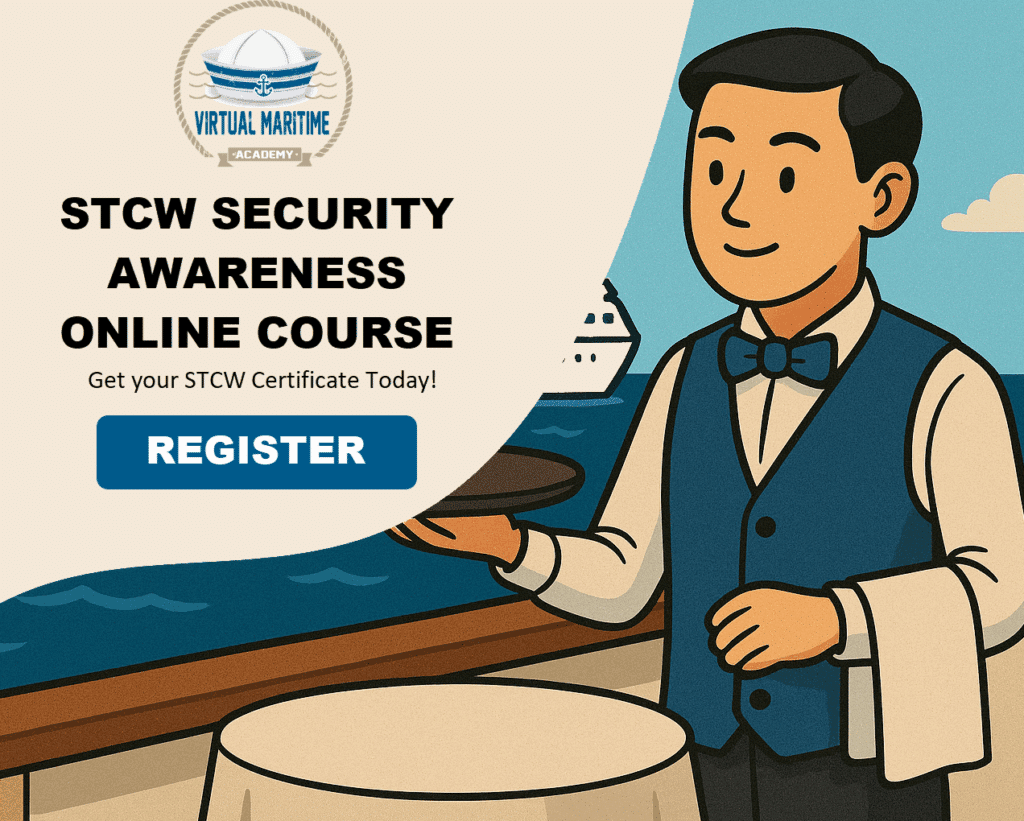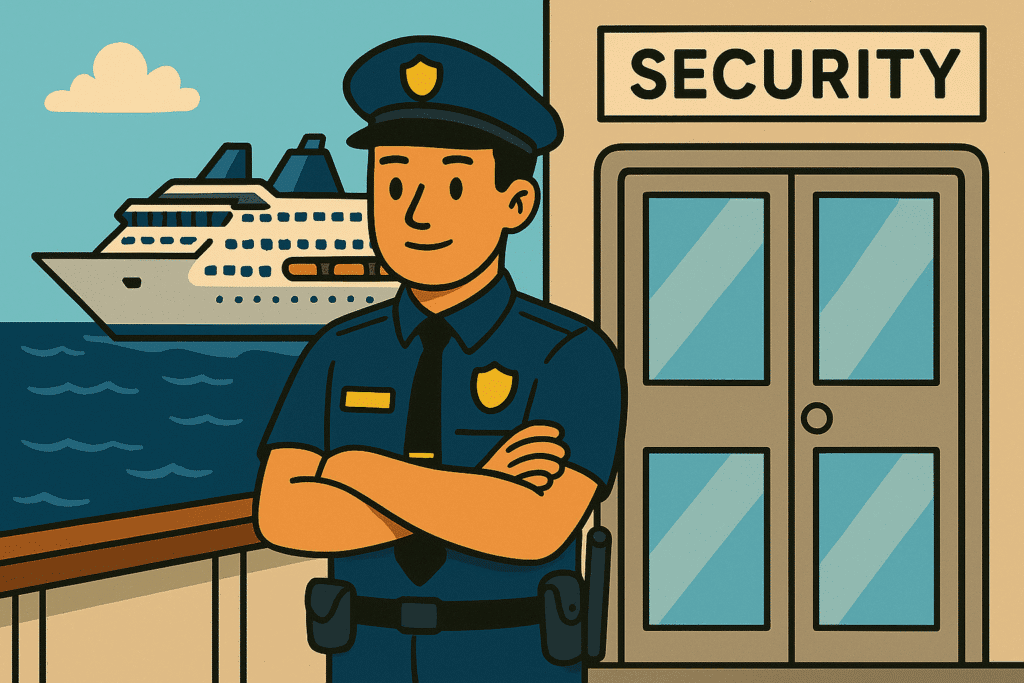In the dynamic and often unpredictable world of maritime operations, security is of paramount importance. As globalization continues to expand the reach of shipping activities, the risks associated with maritime voyages have evolved. This is why every seafarer needs Security Awareness Training for All Seafarers (PSA) Certification today. This comprehensive training equips crew members with the knowledge and skills necessary to recognize and respond to various security threats, ensuring the safety of personnel, vessels, and cargo. In this article, we will delve into the fundamental reasons behind the necessity of PSA certification, explore its key components, highlight the benefits for both seafarers and maritime organizations, and outline the steps to obtain this essential certification, along with best practices for effective security awareness.
Key Takeaways
- Security awareness training equips seafarers with the necessary skills to identify and mitigate security threats.
- PSA certification is essential for compliance with international maritime security regulations.
- The key components of PSA certification include threat assessment, security procedures, and emergency response training.
- Seafarers with PSA certification enhance their employability and contribute to safer maritime operations.
- Establishing best practices and ongoing training can ensure long-term adherence to security awareness protocols.
Understanding the Importance of Security Awareness Training
In today’s maritime world, security is paramount, making it essential that every seafarer undergoes Security Awareness Training. This training, often known as PSA Certification, equips seafarers with the critical skills needed to identify and manage security threats during their operations at sea. The importance of this training cannot be overstated; as maritime threats evolve, so too must the capabilities of those charged with maintaining safety and security onboard. By understanding the principles of security awareness, every seafarer can contribute to a culture of vigilance, ensuring not only their own safety but also that of their ship and crew. Navigating complex waters, both literally and figuratively, requires the knowledge imparted by Security Awareness Training to effectively handle potential security incidents. Thus, it is imperative that all seafarers prioritize this certification to ensure they are well-prepared to face these challenges head-on.
Key Components of PSA Certification
In today’s maritime industry, safety and security are paramount, making the PSA (Port Security Awareness) Certification essential for all seafarers. This certification addresses critical aspects of maritime security, ensuring that seafarers are well-informed about potential threats and the necessary protocols to mitigate risks. Key components of the PSA Certification include understanding the international maritime security framework, recognizing vulnerabilities in port operations, and mastering emergency response strategies. By undergoing Security Awareness Training, seafarers learn to identify suspicious activities, understand their roles in maintaining safety, and develop effective communication skills to report any potential security incidents. Ultimately, acquiring the PSA Certification not only enhances individual competencies but also contributes to a safer maritime environment. That’s why every seafarer needs Security Awareness Training for All Seafarers (PSA) Certification today, as it equips them with the knowledge and skills to navigate their responsibilities in an increasingly complex security landscape.
‘Security is not a product, but a process.’ – Bruce Schneier
Benefits of PSA Certification for Seafarers and Maritime Organizations
In today’s maritime industry, security challenges continue to evolve, making it essential for seafarers and maritime organizations to stay ahead of the curve. This is where the importance of obtaining Security Awareness Training for All Seafarers (PSA) Certification becomes evident. Firstly, PSA certification equips seafarers with vital knowledge and skills to identify and respond to security threats, fostering a culture of security awareness onboard. Moreover, having your crew certified not only enhances the overall safety of the vessel but also demonstrates compliance with international regulations, thereby boosting the credibility of maritime organizations. Furthermore, this certification can open up more job opportunities for seafarers, as many employers prioritize candidates who possess recognized security training. In an era where maritime security is paramount, understanding why every seafarer needs Security Awareness Training for All Seafarers (PSA) Certification today is critical for the future of safe and secure maritime operations.
Steps to Obtain PSA Certification and Best Practices
Obtaining your PSA Certification is an essential step for all seafarers aiming to enhance their skills and adhere to safety protocols at sea. First, it’s crucial to understand why every seafarer needs Security Awareness Training for All Seafarers (PSA) Certification today. This certification not only complies with international regulations but also equips seafarers with the ability to recognize and respond to security threats effectively. The steps to achieving this certification typically begin with enrolling in an accredited training course, which covers critical subjects such as risk management, piracy prevention, and emergency response strategies. Next, aspiring seafarers must complete in-class training, often accompanied by practical exercises and assessments to ensure comprehension of the material. Upon successful completion of the course, candidates will receive their PSA Certification, validating their competence in maritime security. It’s advisable to regularly renew your certification and participate in refresher courses to stay updated on current security practices and standards, ensuring that you are always prepared to maintain a safe maritime environment.
About Virtual Maritime Academy
Virtual Maritime Academy is a leading provider of online maritime education and training, offering a wide range of courses designed to meet the needs of the global maritime industry. With a commitment to quality and innovation, Virtual Maritime Academy is dedicated to preparing seafarers and maritime professionals for success in their careers. Now a DNV Certified Maritime Training Provider, the academy upholds the highest standards of excellence in training and education.


